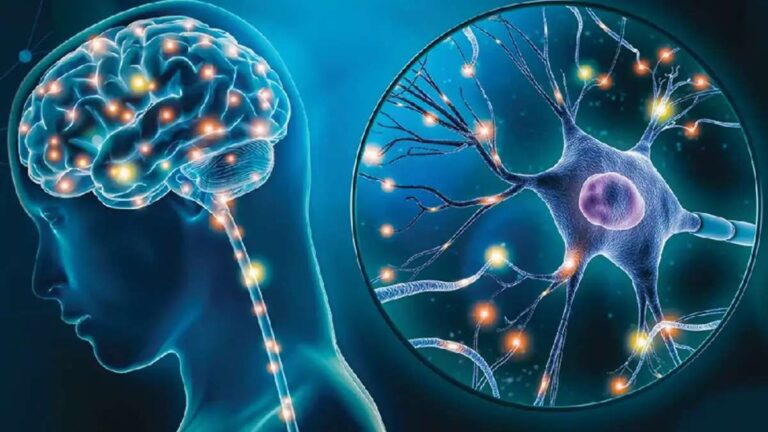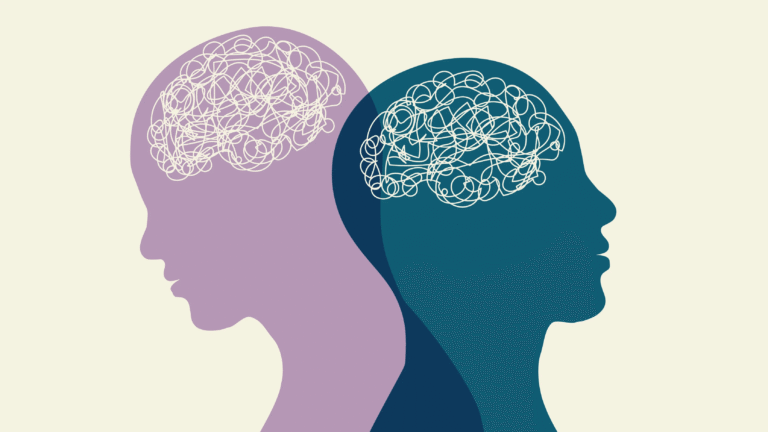Hormonal changes are a fundamental aspect of human biology, influencing various bodily functions from metabolism to reproduction. However, the impact of hormonal fluctuations on mental well-being is profound and often underestimated. Understanding these effects requires a nuanced view of the interconnectedness between the endocrine system and the brain. This article delves into the intricate ways hormonal changes can influence mental health, addressing various life stages, conditions, and the potential interventions available.
The Endocrine System and Mental Health: An Overview
The endocrine system, a network of glands that produce and release hormones, plays a pivotal role in regulating mood, stress response, and cognitive functions. Hormones like cortisol, estrogen, testosterone, and thyroid hormones directly affect the brain’s neurotransmitters, which are chemicals that communicate information throughout the brain and body. Any imbalance in these hormones can lead to significant changes in mood and mental state.
1. Puberty: The First Major Hormonal Shift
Puberty is the first significant hormonal change in life, marked by the increased production of sex hormones such as estrogen and testosterone. These hormones are responsible for the development of secondary sexual characteristics but also have a profound impact on the brain’s development.
During puberty, the brain undergoes significant remodeling, particularly in areas involved in emotion regulation, decision-making, and social behavior. This period often corresponds with the onset of mental health issues like anxiety, depression, and mood swings. The surge in hormones, coupled with the brain’s ongoing development, can create a period of emotional instability.
2. Menstrual Cycle: Monthly Hormonal Fluctuations
For individuals who menstruate, the monthly hormonal fluctuations associated with the menstrual cycle can significantly affect mood and mental well-being. Estrogen and progesterone levels fluctuate throughout the cycle, influencing neurotransmitters like serotonin and dopamine, which are closely tied to mood regulation.
Premenstrual Syndrome (PMS) and its more severe form, Premenstrual Dysphoric Disorder (PMDD), are conditions where hormonal changes cause mood swings, irritability, and even depressive symptoms. Understanding these cycles and their impact on mental health can help in managing symptoms effectively.
3. Pregnancy and Postpartum: A Roller Coaster of Hormones
Pregnancy is another period of profound hormonal changes, characterized by elevated levels of estrogen and progesterone, which are necessary for maintaining the pregnancy. These hormonal shifts can have varying effects on mental health, ranging from the so-called “pregnancy glow” to more severe conditions like anxiety and depression.
Postpartum, the abrupt drop in these hormones, combined with the stress of caring for a newborn, can lead to postpartum depression (PPD). PPD is a serious condition that requires prompt attention. If you or someone you know is experiencing these symptoms, it is essential to visit your local hormone center for evaluation and potential treatment options.
4. Perimenopause and Menopause: The Transition Years
Perimenopause, the transition period leading up to menopause, is characterized by fluctuating levels of estrogen and progesterone. These fluctuations can cause a range of psychological symptoms, including mood swings, anxiety, and depression. During menopause, the cessation of estrogen production can exacerbate these symptoms, leading to what is often termed “menopausal depression.”
Understanding that these mood changes are often hormonally driven can help in managing expectations and seeking appropriate treatment, such as hormone replacement therapy (HRT) or other medical interventions.
5. Thyroid Dysfunction: A Silent Mental Health Disruptor
The thyroid gland produces hormones that regulate metabolism, but these hormones also have a significant impact on mental health. Hypothyroidism, characterized by low levels of thyroid hormone, can lead to symptoms of depression, fatigue, and cognitive impairment. Conversely, hyperthyroidism, or an overactive thyroid, can cause anxiety, irritability, and restlessness.
Because thyroid disorders can mimic psychiatric conditions, it is crucial to include thyroid function tests in the diagnostic process for mental health issues. Early detection and treatment of thyroid dysfunction can prevent long-term mental health complications.
6. Stress and Cortisol: The Body’s Response to Pressure
Cortisol, often referred to as the “stress hormone,” plays a crucial role in the body’s response to stress. While short-term increases in cortisol are necessary for survival, chronic stress can lead to prolonged elevated cortisol levels, which are associated with anxiety, depression, and cognitive decline.
Managing stress through lifestyle changes, therapy, and sometimes medication can help regulate cortisol levels and improve mental well-being. Additionally, understanding the role of cortisol in the body’s stress response can provide insight into the importance of stress management for mental health.
7. Andropause: The Male Menopause
Andropause, often termed the male menopause, refers to the gradual decline in testosterone levels in men as they age. This hormonal change can lead to symptoms such as irritability, depression, and a decreased sense of well-being.
Unlike menopause in women, andropause occurs more gradually, which can make its symptoms less noticeable but no less impactful on mental health. Testosterone replacement therapy (TRT) and lifestyle modifications are common treatments that can help alleviate symptoms.
8. Hormonal Contraceptives: Unintended Mental Health Effects
Hormonal contraceptives, including birth control pills, patches, and intrauterine devices (IUDs), are widely used for family planning but can also affect mental health. The synthetic hormones in these contraceptives can influence mood, leading to symptoms such as depression and anxiety in some individuals.
Not everyone experiences these side effects, but for those who do, it is important to consult with a healthcare provider. Adjusting the type or dosage of contraceptive can sometimes alleviate these symptoms.
9. Hormonal Imbalances: A Broader Impact on Mental Health
Beyond the specific life stages and conditions mentioned, any disruption in hormonal balance can affect mental well-being. Conditions such as Polycystic Ovary Syndrome (PCOS), adrenal gland disorders, and pituitary gland abnormalities can all lead to hormonal imbalances with significant psychological effects.
In these cases, a comprehensive approach that includes hormonal testing, lifestyle changes, and possibly medication is often required. It is crucial to visit your local hormone center for a thorough evaluation if you suspect a hormonal imbalance is affecting your mental health.
Final Thoughts: Proactive Management for Mental Well-Being
The relationship between hormones and mental health is complex and multifaceted. While hormonal changes are a natural part of life, understanding their impact on mental well-being is crucial for proactive management. By recognizing the signs and seeking appropriate medical guidance, individuals can better navigate the challenges associated with hormonal fluctuations.
Mental health should be viewed through a holistic lens that considers both psychological and physiological factors. Hormonal changes are an integral part of this equation, and addressing them can lead to significant improvements in overall mental well-being.











